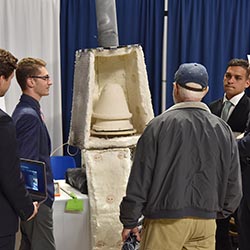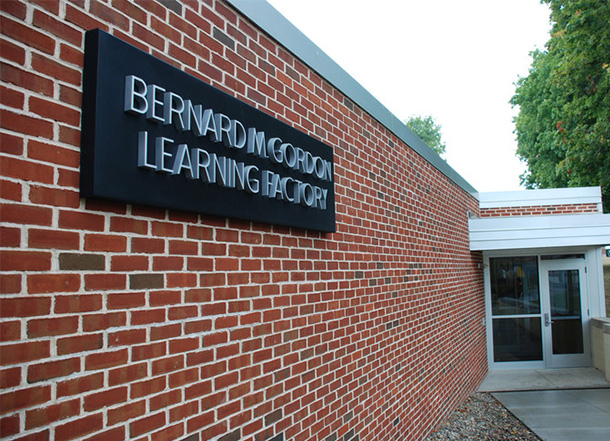
Eventually Rich and I ended up doing some psychometric research on the learning styles instrument that he created. In terms of influence from my peers, the first work in engineering education that I came across was the work of Rich Felder on learning styles.

There will be difficult times, disappointments, and challenges in finding funding, but if you have a core group who are working together and can support each other, it will allow you to sustain the effort. It is essential to have a core group of colleagues who have similar interests. In order to make a contribution to engineering education, having a supportive environment is key. They were very influential in helping the department heads understand the importance of engineering education scholarship and in supporting it whenever promotion and tenure decisions were made. Deans John Brighton, who led the effort that created the Leonhard Center, and David Wormley were also very supportive of scholarship in engineering education. One of the most significant influences in my career was from the Associate Dean, Carl Wolgemuth, who exposed me to engineering education through ASEE meetings and the NSF ECSEL Coalition. The leadership at Penn State strongly supported engineering education. Mentorship from leaders and inspiration from peers Without the ECSEL experience, I wouldn’t have had the qualifications necessary for the position. This experience set me up to interview successfully for the position of director of our education center within the College of Engineering. It was the first time I came to understand that there is an extensive body of research literature on topics related to teaching and learning. Eventually, I became the Penn State PI for the coalition and held that role for seven years, which allowed me to understand more and more about engineering education. When the Penn State principal investigator for the ECSEL Coalition went on sabbatical, my associate dean asked me to serve as the interim PI. My participation in ECSEL put my feet on the path that allowed me to have the job that I have now, as director of the Leonhard Center for the Enhancement of Engineering Education in the Penn State College of Engineering. The NSF ECSEL Coalition was really a transforming experience for me and other faculty members who were involved at that early stage of our careers.
PSU LEARNING FACTORY CAPSTONE FULL
The experience in the ECSEL Coalition helped me understand the full scope of engineering education and the many things that could be done as a scholar of engineering education.

Five years later, I had the opportunity to become involved in the National Science Foundation’s ECSEL (Engineering Coalition of Schools for Excellence in Education and Leadership) Coalition, which was a coalition of seven schools that were working on integration of design across the curriculum. These high ratings brought me to the attention of our Associate Dean for Undergraduate Programs, who offered to send me to an ASEE (American Society for Engineering Education) meeting. M.Eng., Mechanical Engineering, Rensselaer Polytechnic Institute, 1981ī.S., Nuclear Engineering, Pennsylvania State University, 1977Īs an assistant professor in my first year of teaching, I received very high student evaluations, even though I was teaching thermodynamics, which is a course that students have been known not to enjoy. Ph.D., Mechanical and Aerospace Engineering, Princeton University, 1986 Litzinger in 2014.ĭirector, Leonhard Center for the Enhancement of Engineering EducationĪssistant Dean for Educational Innovation and Accreditation, College of Engineering The profile below was authored by Gina Adam, University of California Santa Barbara, based on an interview with Dr. He is currently the Assistant Dean for Educational Innovation and Accreditation in the College of Engineering, and Director of the Leonhard Center for the Enhancement of Engineering Education, which collaborates with the engineering departments to bring continuing improvements to Penn State’s undergraduate engineering programs and to provide instructional support to faculty.

He began his career there as assistant professor of mechanical engineering and held a leadership role in the NSF-funded ECSEL Coalition. Tom Litzinger has worked at Penn State University since 1985.


 0 kommentar(er)
0 kommentar(er)
